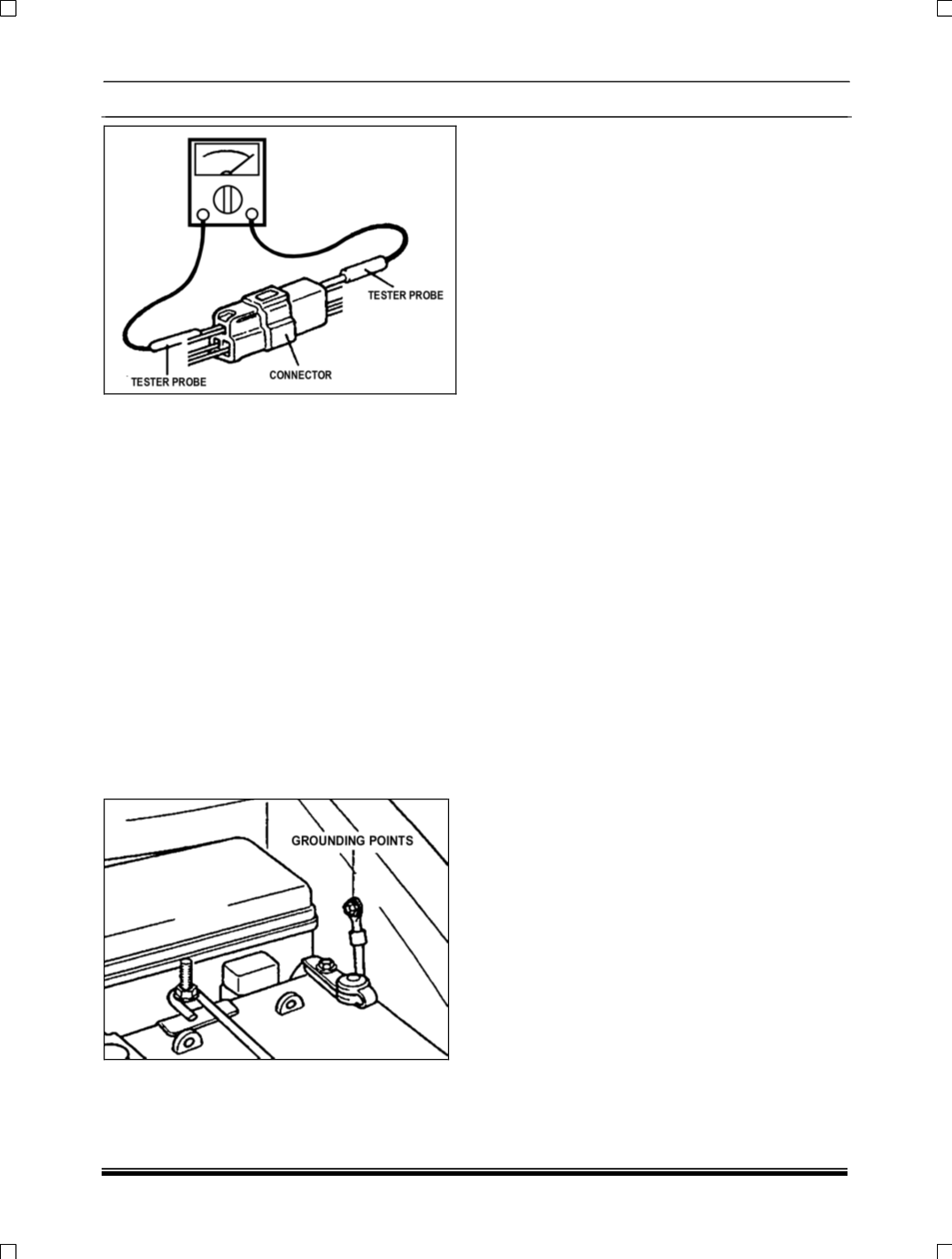

ELECTRICAL
6
12.
In order to avoid overloading the wiring,
take the electrical current load of the optional
equipment into consideration, and determine the
appropriate wire size.
Checking cables and wires
a. Check the terminal for tightness
b. Check terminals and wires for corrosion by
battery electrolyte etc.
c. Check terminals and wires for open circuit or
impending open circuit.
d. Check wire insulation and coating for damage,
cracks and degrading.
e. Check conductive parts of terminals for contact
with other metallic parts (vehicle body and other
parts).
f. Check grounding parts to verify that there is
complete continuity between mounting bolt (s)
and vehicle body.
g. Check for correct wiring.
h. Check that wirings are clamped so as to prevent
contact with sharp corners of the vehicle body,
etc. or hot parts (exhaust manifold, pipe, etc.).
i. Check that the wirings are clamped firmly to
secure enough clearance from the pulley, belt
and other rotating or moving parts.
j. Check that the wirings between the fixed parts
such as the vehicle body and the vibrating parts
such as the engine are made with adequate
allowance for vibrations.










